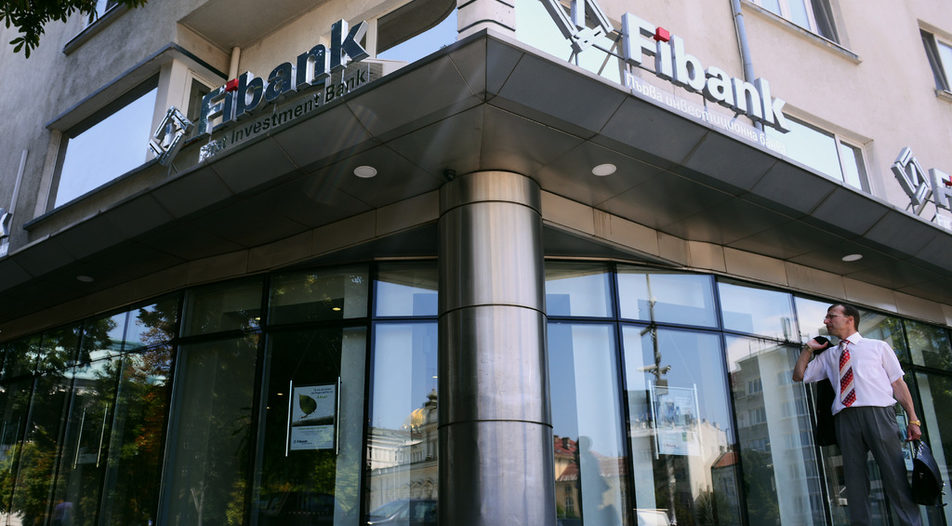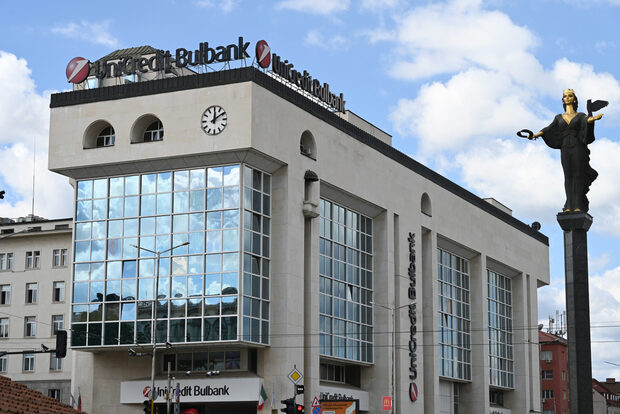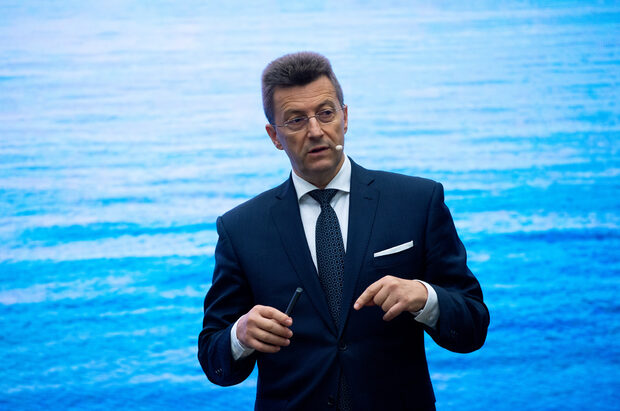The European Central Bank's massive asset quality review in preparation for Bulgaria joining the EU's Banking Union is underway and First Investment Bank (Fibank), the country's largest private, domestically-owned lender, has cleaned up its act by getting a balance sheet makeover at the end of 2018. Much of this was achieved through Fibank leasing out a significant part of the site of the former Kremikovtzi steel mill that had long been a drain on its balance sheet.
In addition, December data showed a number of transactions among some of the bank's biggest debtors which together owe about half a billion levs to Fibank. Most likely, the exercise aims to soften one of the most frequent accusations against the bank - of granting large loans to businesses related to its owners. The changes are also designed to make those debtors look better capitalized, so cutting the risk of the ECB imposing substantial revisions and additional provisions on the bank.
Burdened with assets
The enormous value of the assets Fibank has acquired as loan collateral has long been a major bugbear. When 800 hectares of land of the bankrupt Kremikovtzi steel mill were added to the balance sheet in 2015, the figure rose to almost one billion levs. Add other assets recently re-classified as an investment property, then the figure would grow to 1.2 billion levs. For the most part, these properties bring no revenue, and since they were added to the balance at a high value, selling them without incurring losses was always going to be difficult.
The recent revival of the real estate market in Bulgaria has enabled Fibank to gradually divest these properties. The most significant deal was the financial lease of part of the Kremikovtzi site to a unit of Austria's Soravia Group announced at the end of last year. Subsequently, it emerged that the deal covered 40% of the area of the site but no other details of the contract were disclosed which makes it difficult to estimate the overall benefit from the deal.
Fibank's 2018 annual report shows that the revenue from sales of assets had soared from 6 million levs at the end of September to 81 million levs at the end of the year. It should be noted, however, that other deals could account for the 75 million levs rise. Largely due to this increase, Fibank's net profit jumped from 62 million levs at the end of September to 152 million levs at the end of the year. This would allow the bank to cover write-downs on the initial introduction of the 2018 International Financial Reporting Standard 9 (IFRS 9) without falling below the regulatory capital requirements.
Offshore scramble
December was also full of transactions which appear to be related to Fibank's debt exposure at the time of the asset quality review.
The most significant changes were made by two borrowers - Hefty Metals and Nadin Hold, both involved in scrap metal recycling. Formally, they are independent, each owned by a different offshore company based in the British Virgin Islands - Nyquilla Developments Limited and Friesian Consultants, respectively. However, they are registered at the same address, operate the same scrapyards, and have the same contact information on their websites.
Following a series of transfers of ownership of related companies by Nyquilla and Friesian in December, Hefty Metals which owes 41.2 million levs to Fibank (end-2017 figure) has a new owner - Filip Mitkov, CEO of Hefty Metals. Nadin Hold, which owes Fibank 160 million levs, is now owned by Nikolai Binev, whose LinkedIn profile says he worked at Fibank from 1996 to 2008, latterly as deputy director of the IT department.
Although the two companies were formally separate prior to the ownership changes, their identical details might have raised some questions from the auditors because the loans that banks in Bulgaria can extend to affiliated persons are limited by law. However, the transactions further distance the companies from each other and may seem more appropriate to the ECB-appointed auditors - EY.
Recycling property
Another transaction that is likely to make one of Fibank's bigger exposures look more agreeable took place within the construction company PST Group. The Sofia-based firm owes Fibank 160 million levs, whereas its revenues amounted to just 82.4 million levs in 2017, and it ended that year with a loss of 182,000 levs.
At the end of 2018, PST Group established a new company - PST Property, into which it incorporates its headquarters building and other properties worth a total of 26 million levs. They were already part of PST Group's collateral for over 100 million levs' worth of loans but following the operation, another pledge was issued on the new company for a loan to civil engineering company Patstroi-Lovech.
Patstroi-Lovech was part of the PST Group up until 2013 when it was transferred to an offshore company from the British Virgin Islands and since 2014 has been owned by Cyprus-registered Cervinara Enterprises Limited. According to 2017 data, Patstroi-Lovech has two outstanding loans from Fibank with a total principal of over 76 million levs plus another credit from Fibank's subsidiary in Macedonia worth 2 million euro. In addition, Patstroi-Lovech has accumulated interest of close to 27 million levs on the first two loans, so Fibank's exposure stands close to 100 million levs in total. At the same time, the main assets of Patstroi-Lovech are receivables acquired through cessions. The company's own business was the only collateral on its loans from Fibank but now properties have been added to it.
It remains to be seen whether all this will help Fibank pass the asset quality review smoothly. The credit files of those companies will certainly be subject to in-depth scrutiny as the bank's biggest exposures. Should the ECB decide to impose substantial revisions, Fibank may be forced to enact prescriptions and recapitalize.
Christina Lucas, Site Leader and General Manager for AIG Europe in Bulgaria: Brexit is an opportunity for Bulgaria to attract financial services companies
1. What was the major event in your business sector in Bulgaria in the last quarter?
After the very positive annual industry report that came out in October, the beginning of 2019 brought more good news for the Bulgarian outsourcing sector. In the same week, the World Bank Group revealed its decision to establish a shared services center in Sofia and Facebook announced the opening of a new content review center. With the largest global organizations entering the market, Bulgaria continues to assert itself as one of the world's leading outsourcing destinations and the best performer in the SEE region.
2. What do you see as the next major development in your company's business in the forthcoming quarter or further?
The rising political risks in Europe and the uncertainty around Brexit will remain the main cause for concern in the near future. In this environment, financial institutions will need to mitigate their own operating risks and provide certainty for their business partners and customers. Brexit is also an opportunity for financial services companies to move certain functions to Continental Europe, which could contribute to the growth of the Bulgarian outsourcing industry, given its favorable business environment and well educated talent pool.
Christina Lucas is Site Leader and General Manager for the Bulgarian branch of AIG Europe, where she is responsible for a team of 500 insurance professionals supporting UK and Western European clients with policy issuance and claims adjudication
The European Central Bank's massive asset quality review in preparation for Bulgaria joining the EU's Banking Union is underway and First Investment Bank (Fibank), the country's largest private, domestically-owned lender, has cleaned up its act by getting a balance sheet makeover at the end of 2018. Much of this was achieved through Fibank leasing out a significant part of the site of the former Kremikovtzi steel mill that had long been a drain on its balance sheet.
In addition, December data showed a number of transactions among some of the bank's biggest debtors which together owe about half a billion levs to Fibank. Most likely, the exercise aims to soften one of the most frequent accusations against the bank - of granting large loans to businesses related to its owners. The changes are also designed to make those debtors look better capitalized, so cutting the risk of the ECB imposing substantial revisions and additional provisions on the bank.











